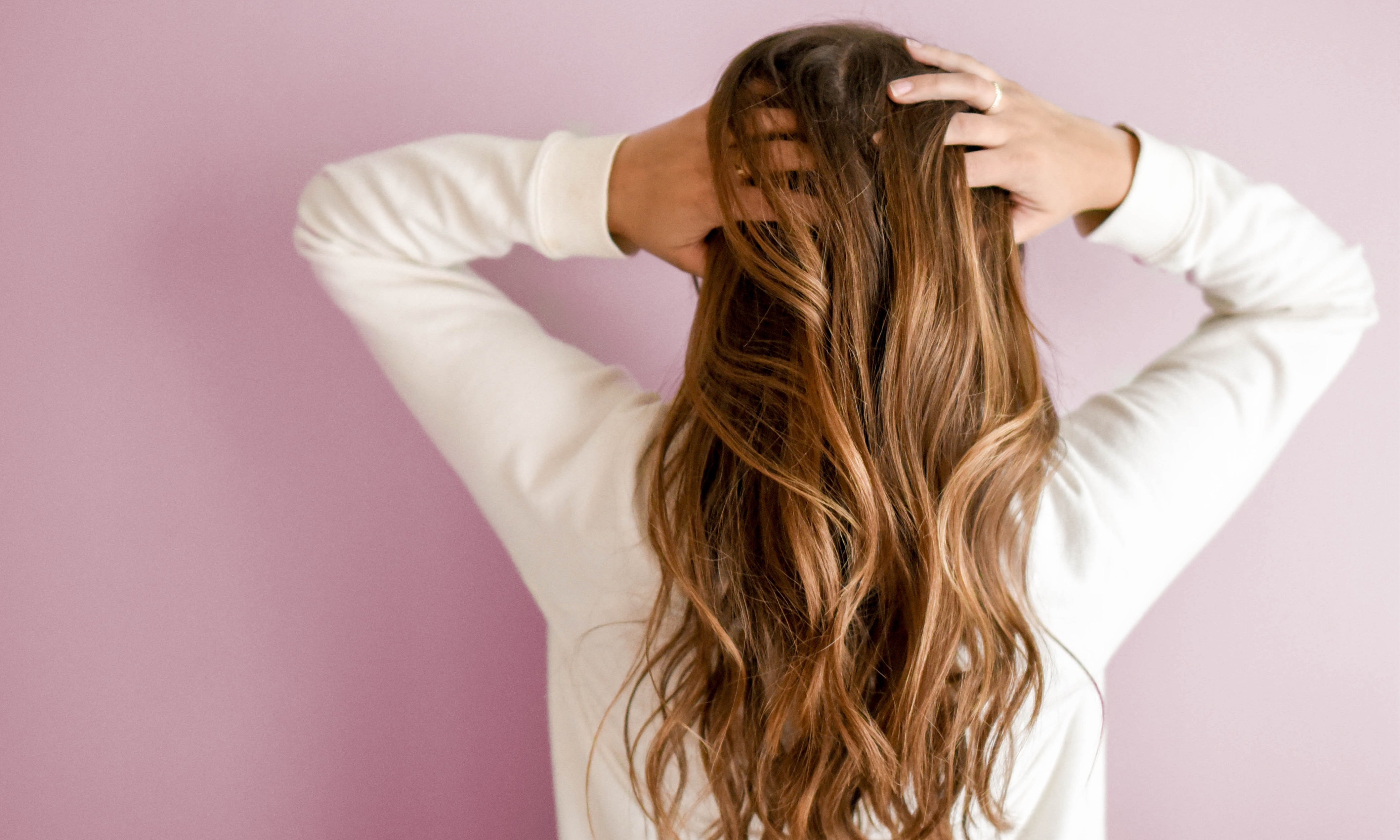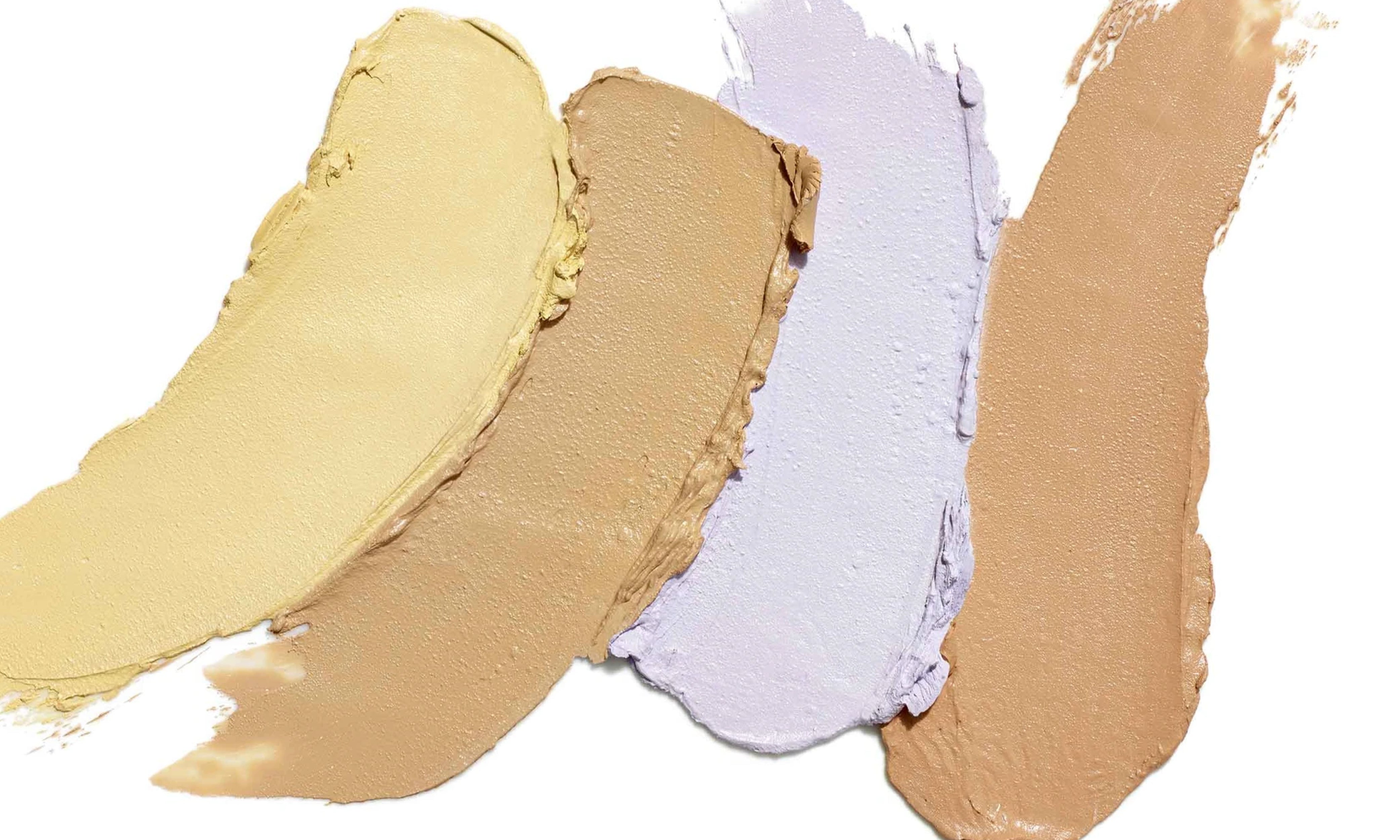
HAIR LOSS?
Why it’s happening, and most importantly: how to fix it.
If you've noticed that a few extra strands of hair have been heading down the drain each time you take a shower recently––you’re not alone. Sleepless nights, maskne, and now hair loss are all part of the plethora of side-effects 2020 stress has bombed upon us.
We often underestimate the power of the mind on the body. More and more research shows that high levels of stress over an extended period of time can drastically alter our health and nearly every one of our systems. Evidently, this includes the integumentary system, which is responsible for the growth, regeneration, and overall health of your skin, hair, and nails.
STRESS AND HAIR LOSS
When the body feels unsafe, the brain signals to your adrenal glands to pump more stress hormones. This can be equally triggered by a physical threat or a psychological threat, such as losing a job, going through a divorce, or catching a virus. Adrenaline and cortisol flood the body and activate your fight-or-flight response which, in turn, shuts down bodily functions that aren't necessary for immediate survival.
When the danger is over, your hormones slowly return to their normal levels. However, during periods of chronic stress—such as a global pandemic—the body is pumping out cortisol, non-stop. This leads to a panoply of problems, including increased inflammation throughout the body, a poorly functioning immune system, skin problems, hair loss, and more.
According to the study results collected by the University of Pittsburgh Medical Center, stress can push hair follicles into a premature "resting" phase that inhibits them from producing new growth. This results in hair that easily falls out, even if you’re simply washing, combing, or touching it.
Stress can also cause hair to thin, leading to the development of sparse bald spots.
WHY IS THIS HAPPENING?
"Doctors say they too are seeing many more patients with hair loss, a phenomenon they believe is indeed related to the coronavirus pandemic", explains Pam Belluck, a journalist for the New York Times.
“There are many, many stresses surrounding this pandemic, and we’re still seeing hair loss because a lot of the stress hasn’t gone away,” says Dr. Shilpi Khetarpal, MD and Board Certified Dermatologist. Before the pandemic, there were weeks when Dr. Khetarpal didn’t see a single patient with hair loss of this type.
Now, she says that about 20 such patients a week come in with the same problem––sparing no gender or age.
TYPES OF HAIR LOSS
There are different types of hair loss the pandemic seems to be triggering:
- Telogen effluvium occurs when people shed much more than the typical 50-100 hairs per day, usually beginning several weeks after a stressful experience.
According to Dr. Jeanine Downie of Image Dermatology, stress shortens your hair’s growth phase by rapidly shifting to the resting phase, where the hair easily falls out. Normally, the resting phase lasts about 3 months. When stressed, it can shorten to one!
Telogen effluvium can typically last about six months, and many women experience it after pregnancy. However, if stressful situations persist or reoccur, the shedding issue may become chronic.
- Trichotillomania occurs when people deal with negative emotions, such as stress and anxiety, by pulling hair out from the scalp, eyebrows, and other parts of the body. This is often seen in people experiencing extremely high stress, as well as across young children and teens.
- Alopecia areata occurs when the immune system attacks hair follicles, usually starting with a patch of hair on the scalp or beard, according to Dr. Mohammad Jafferany, psychiatrist and dermatologist at Central Michigan University.
Doctors aren’t exactly sure what causes alopecia areata, though they believe genetics may be to blame. Stress plays less of a role in alopecia, but we know that stress does impair the immune system, so it is possible that the two be intricately related.
WHAT CAN YOU DO?
Treating any type of hair loss requires lots of patience, but it's entirely doable.
Experts recommend regularly trimming your hair and using deep-penetrating protein conditioners at home. Shab Reslan, a hair health expert at HairClub, suggests using a gentle shampoo and conditioner to maintain a healthy scalp and using topicals to nourish your hair follicles and stimulate growth.
REVIVOGEN MD BIO-CLEANSING SHAMPOO $32.50
REVIVOGEN - PRO THICKENING CONDITIONER $30.00
REVIVOGEN MD SCALP THERAPY (3 MONTH TREATMENT) $130.00
As always, maintaining an active and balanced lifestyle, as well as fostering social connections (especially in these times) can release hormones––such as oxytocin––that counteract cortisol in the body. Getting enough sleep and avoiding heat-styling tools will also promote healthier hair growth.
Taking supplements to boost your nutrient intake and reducing the stress in your life through yoga, scalp massages, or mindfulness practices will also help to reverse the side-effects of anxiety. In extreme cases, Visiting a hair-treatment professional to undergo laser sessions or hair-growth medication is always an option.
"Hair loss itself can cause even more stress", adds Khetarpal, as our hair is often closely tied to our self-identity and self-confidence. However, as hair typically grows half an inch every month, you can expect to see fuller-looking hair around three to four months after implementing treatment and embracing these lifestyle changes.
Even though these times are uncertain, taking care of your well-being is always something solid to fall back on. Situational stress and hair loss are temporary problems that can be reversed with just the right amount of TLC-–we promise.
Until next time,
Mathilde
Ps. Learn more about hair care.














Leave a comment